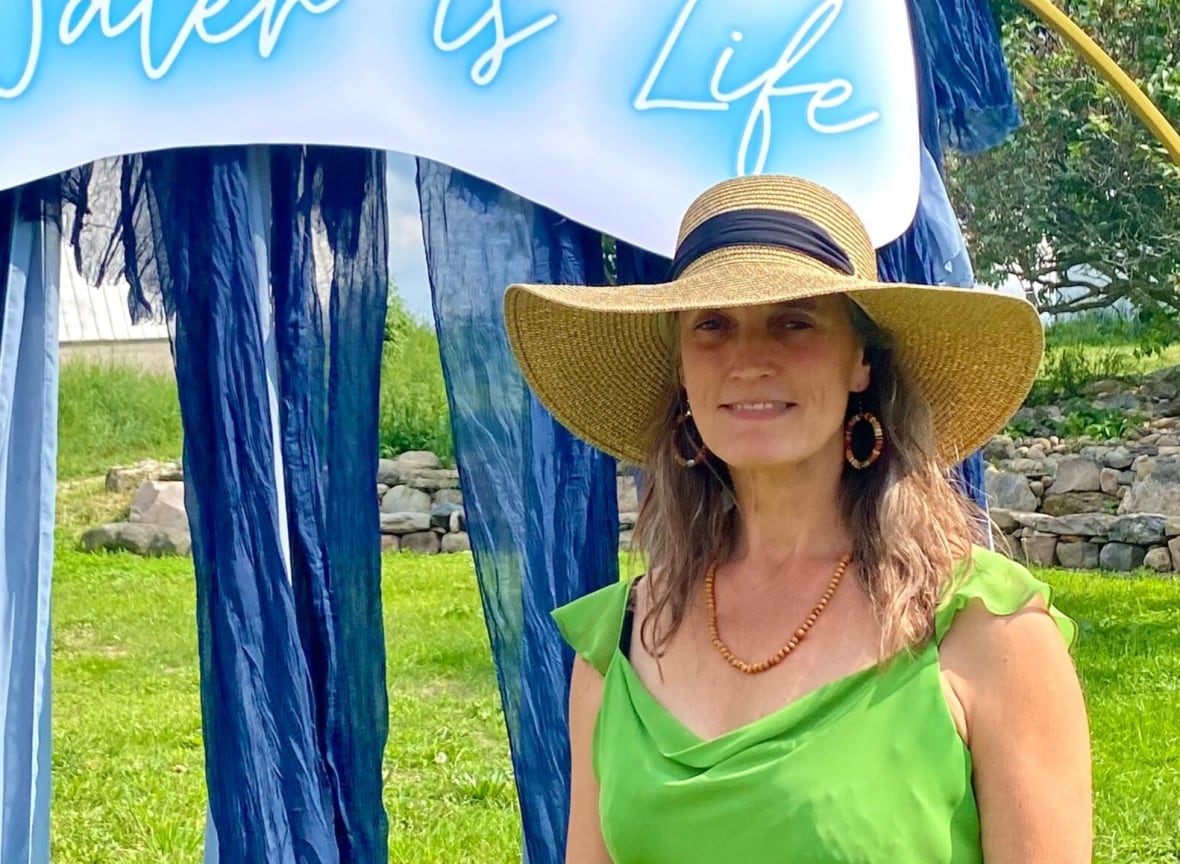She's fought for clean water for years and fears proposed Ontario permit changes will hurt First Nations
Ontario says proposal streamlines permit approval process and it would continue to review applicants

Makasa Looking Horse Henry remembers the moment she learned some people in her community had never tasted clean tap water.
"A lot of people have to rely on buying water, not having any hooked-up water, piped-in water and running water in their households," she said. "This is a huge stressor on Indigenous women's mental health and Indigenous families' mental health."
For the past eight years, Henry has fought for water sovereignty in a place that's been her home her entire life, Six Nations of the Grand River, which is near Brantford and is home to people from all six Haudenosaunee nations.
Now, Henry says, a proposed regulation from the Ontario government could roll back years of advocacy and sideline voices of Indigenous communities like hers.
"It's honestly really, really disappointing and disheartening," she said.
It feels as if the proposal is designed to "keep Indigenous Peoples out of the decision-making from water extraction, and governing our own waters and governing our own lands," Henry added.

The proposed regulation
Under the province's current regulations, companies that want to extract groundwater must apply for a permit to take water, triggering environmental assessments, public consultation, a review of the purpose for taking water and a duty to consult Indigenous communities.
Businesses that might want to take groundwater include agriculture, gravel mining and water-bottling plants.
The proposed regulation would allow those permits to be transferred from one company to another without reapplying, so long as the intended use for the water and amount taken stays the same or declines. That means a business could be sold to a new owner who could inherit the water rights with minimal additional review.
In an emailed statement from a Ministry of the Environment spokesperson, the province said this streamlines the permit approval process, potentially cutting months off the current approval wait time.
The ministry said it would also continue to review all applicants in the streamlined process to ensure requirements are met.
But according to critics, such changes to the process would bypass meaningful environmental checks.
What's at stake
Arlene Slocombe, executive director of Wellington Water Watchers, shares Henry's concerns.
"The [Premier Doug] Ford government wants to make water-taking permits transferrable, meaning no input, no consent and no accountability if corporate ownership changes hands," she said in a phone interview with CBC News.

"This move to change the water-taking permit process is essentially a water-grabbing tactic that would make water-taking permits functionally and potentially eternal once approved."
Slocombe warns the regulation could lead to unchecked withdrawals from groundwater systems with unknown limits.
"It's essentially like writing checks on a bank account that you don't know the balance of, and at some point, you run out," she said. "Nobody's really tallying exactly when that 'zero' mark happens."
Slocombe said while most municipal wells supplying houses and businesses eventually return water to the watershed, facilities like bottling plants could permanently remove it by shipping it beyond the local ecosystem.
Another major concern is the removal of the 30-day public comment period that currently accompanies water-taking applications.
Slocombe said that when BlueTriton applied for its permit to run its Aberfoyle water-bottling operation, more than 32,000 people submitted feedback. Under the new rules, a permit transfer would not require any public input.
Nor would it require consultation with Indigenous groups.
"Again, something else that they're trying to push and take our voices out of the entire conversation," said Henry. "We're not going anywhere and they need to respect us as sovereign nations."
The economics of water-taking
Roy Brouwer, executive director of the University of Waterloo's Water Institute and an economics professor, said the province is undervaluing the true cost of its water.

He said that when he moved to Waterloo region a decade or so ago, the cost was under $5 for 1,000 cubic metres of water (one million litres). Since then, the cost has increased, but not in a way that reflects limited supply or environmental impact.
"They just added $500 like a round number, $500 on the permit," he said.
"It has all the appearances of an administrative fee. And it doesn't necessarily reflect the scarcity costs of the resource now and into the future, benefiting multiple users," said Brouwer.
He believes the transfer system, as proposed, ignores the fact that water is limited.
Brouwer said he's also concerned about the environmental impact.
"Over time … what you initially identified as a maybe limited or moderate ecological risk is perhaps a bigger risk because you actually do the pumping and you can actually observe what is happening to the natural environment."
The fight in Aberfoyle
Henry was a vocal critic of the former Nestlé bottling plant in Aberfoyle, later sold to BlueTriton and now owned by Ice River Springs.
Despite it being part of the application process, indigenous consultation was minimal.
"Nobody knew in my community that water extraction … was happening. And with the lack of consultation, not even the governments knew that that was happening either," she said.
"Our people had no idea."
Over the years, she's held groundwater awareness rallies — sometimes by herself — and delivered cease-and-desist letters on behalf of her band council.
She said she secured those by "going to meetings at our long house and letting our clan mothers, faith keepers and chiefs know what was happening. And so they said deliver the cease-and-desist to them. And so that's what I did."
Ice River Springs, an Ontario-based bottling company and the newest owner of the Aberfoyle water-bottling facility, has yet to apply for its water-taking permit.
In an emailed statement to CBC News, executive vice-president and co-owner Sandy Gott said the company "supports initiatives that maintain environmental protection" and it would do its work "with respect for the communities in which [they] operate."
Concerns about being cut out
The public comment period for Ontario's proposed water permit regulation runs until Aug. 1. After that, it moves to a review and decision stage.
There is no fixed timeline for when a final decision will be made.
Henry said she's concerned about being cut out of the process entirely.
"Right now, they're trying to take every single thing that they can and they're trying to take more water," she said.
"And so we're just trying to fight with everything we have to protect our waters and our lands. They go hand in hand."